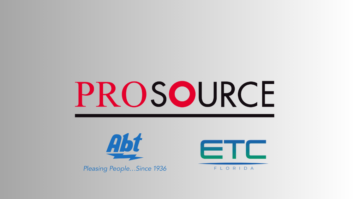According to reports from newspapers out of Florida this week, President Barack Obama’s 2011 budget, which will be submitted to Congress on Monday, will propose abandoning NASA’s program to return U.S. astronauts to the moon by the end of the decade, as established under Project Constellation.
Other NASA observers have speculated that Obama’s plan is not to scuttle the country’s goals for manned space exploration (NASA’s budget may ultimately be increased by $6 billion over the next five years), but to pursue the space administration’s objectives more efficiently, and to begin the first steps toward the commercialization of manned space flight, (but apparently with no specific government directive involved).
I certainly hope the latter holds true.
Arguably, Project Constellation, which was authorized by former President George W. Bush, may not have been the best plan for achieving a farther off goal of sending man to Mars, but it would have kept the U.S. space agency in the game, if not at the head of the game, as China, Japan, and Europe take their first bold steps into space, and Russia catches up to us.
If fears of NASA experts are confirmed, Obama’s plan would delay this country’s next great leap in manned space exploration into the next decade, and that would be unfortunate for industries around the world, not the least of which is the consumer electronics industry.
Few sectors have profited as much as the CE industry from NASA’s R&D technology breakthroughs initiated in response to President Kennedy’s directive to land a man on the moon and return him safely to the earth.
NASA’s quest to find solutions for better communication systems from space laid the ground work for the development of many of the digital technologies we find indispensable in our homes, cars and pockets today.
Just a few of the products that grew out of research started with funding for NASA space missions include: digital cameras, GPS systems, 3D audio sound systems, not to mention CDs, and DVDs, which grew out of the development of digital voice transmission.
Check this link for a fascinating list of the thousands of private industry success stories that stemmed directly from NASA-initiated projects.
Further, those profits have been enjoyed by companies around the world, not only those based in the United States.
All of this started with government funding into scientific space research and led to the creation of thousands of international jobs, billions of dollars for the global economy and priceless scientific knowledge into the nature and origins of our universe.
Further manned space missions could lead to the development of new and greener methods for energy creation, and could foster continued International cooperation in space exploration.
Clearly, President Obama has an enormous task ahead in righting the country’s crashed economy, and spending on NASA programs may seem like an unnecessary extravagance in the face of human suffering.
I argue that the true value of NASA is not simply in successfully achieving the outlined objectives of its missions, but in growing the private sector economy symbiotically around the efforts and technologies it will take to get them done.
NASA’s manned space missions present some of those rare opportunities this country has to leave a lasting legacy to all of mankind (our Great Pyramid was putting a man on the moon), and pulling back its funding and scuttling missions underway in one of our darkest hours would be as near sighted as President Nixon pulling the plug on project Apollo back in the seventies.
It’s time to put politics aside and stimulate the economy with expenditures that pay us back in technological dividends – not bailouts to bankers.













